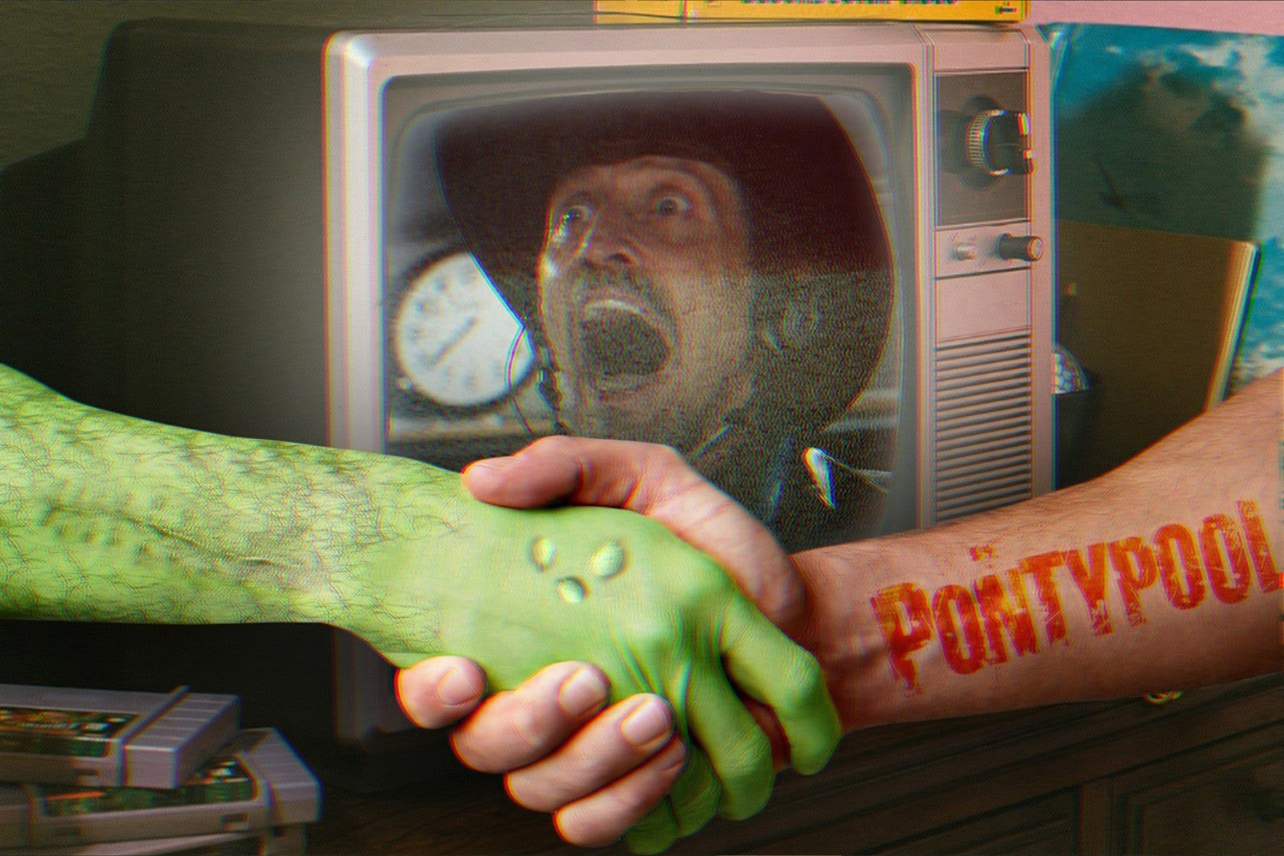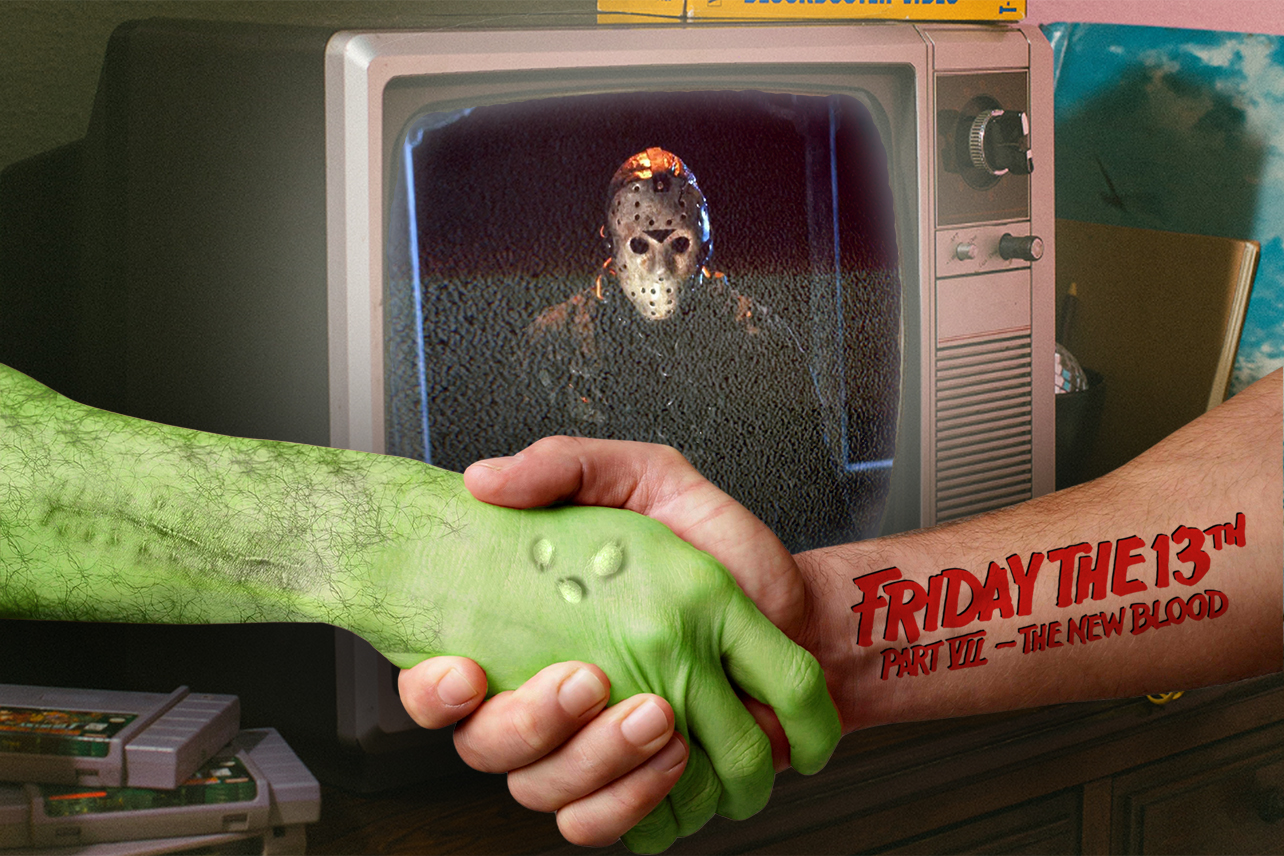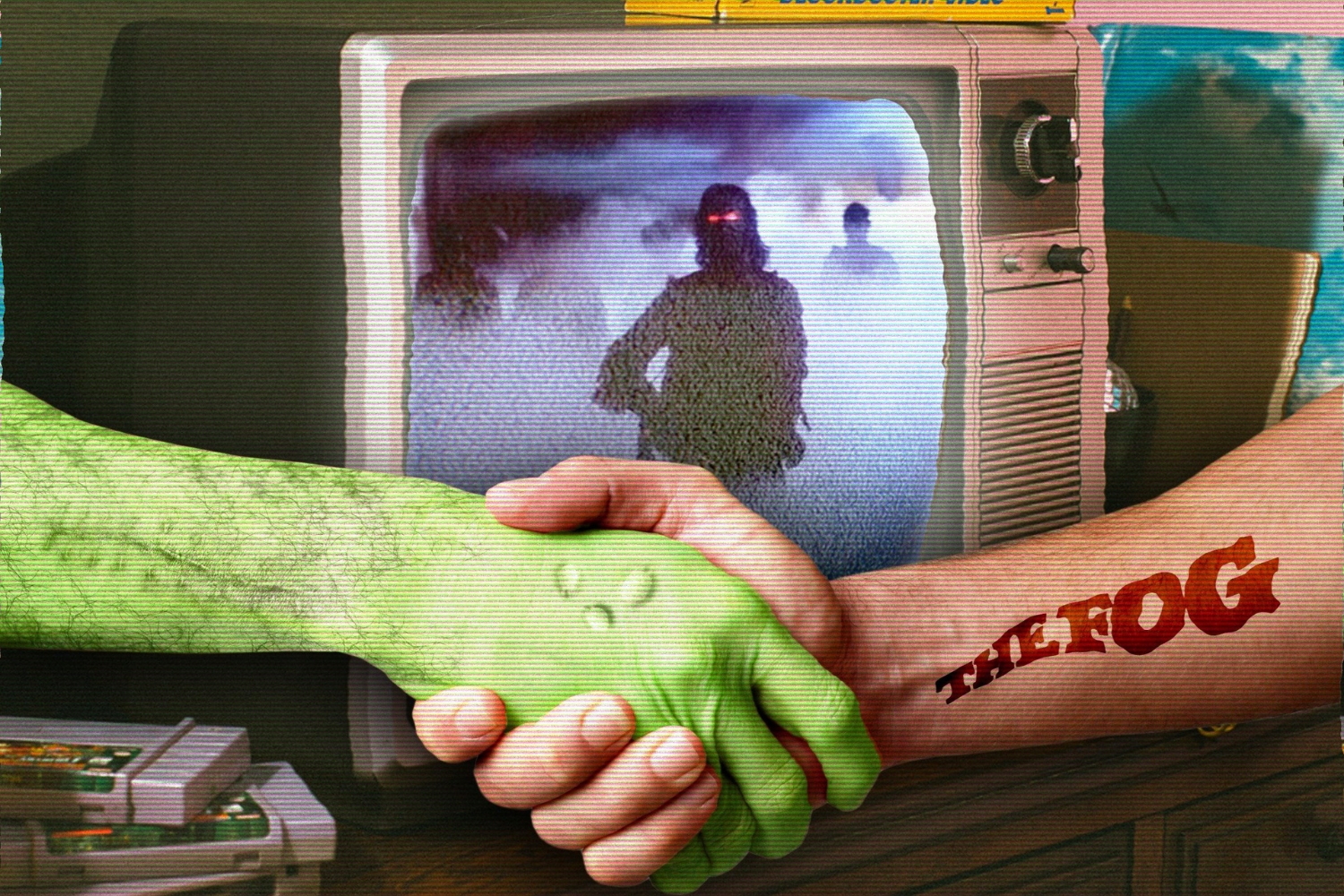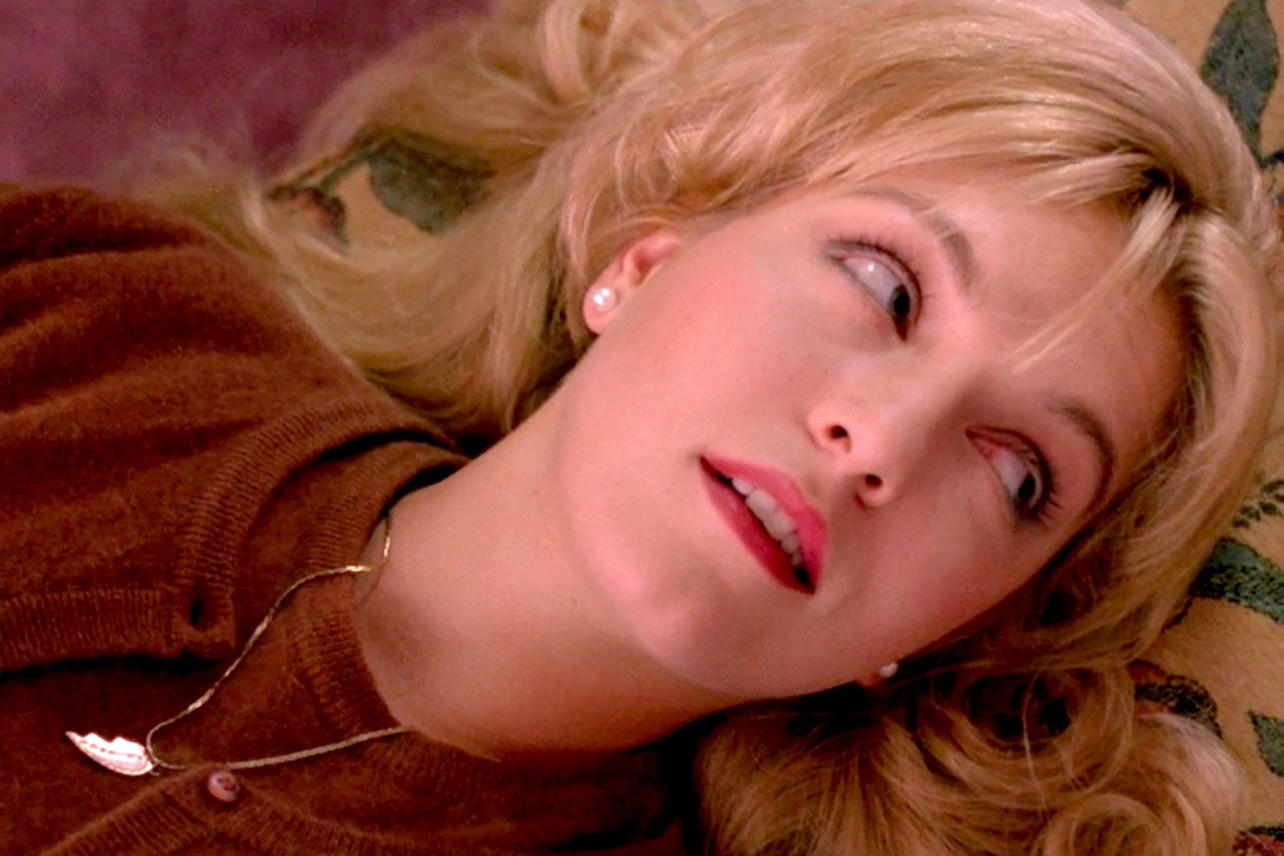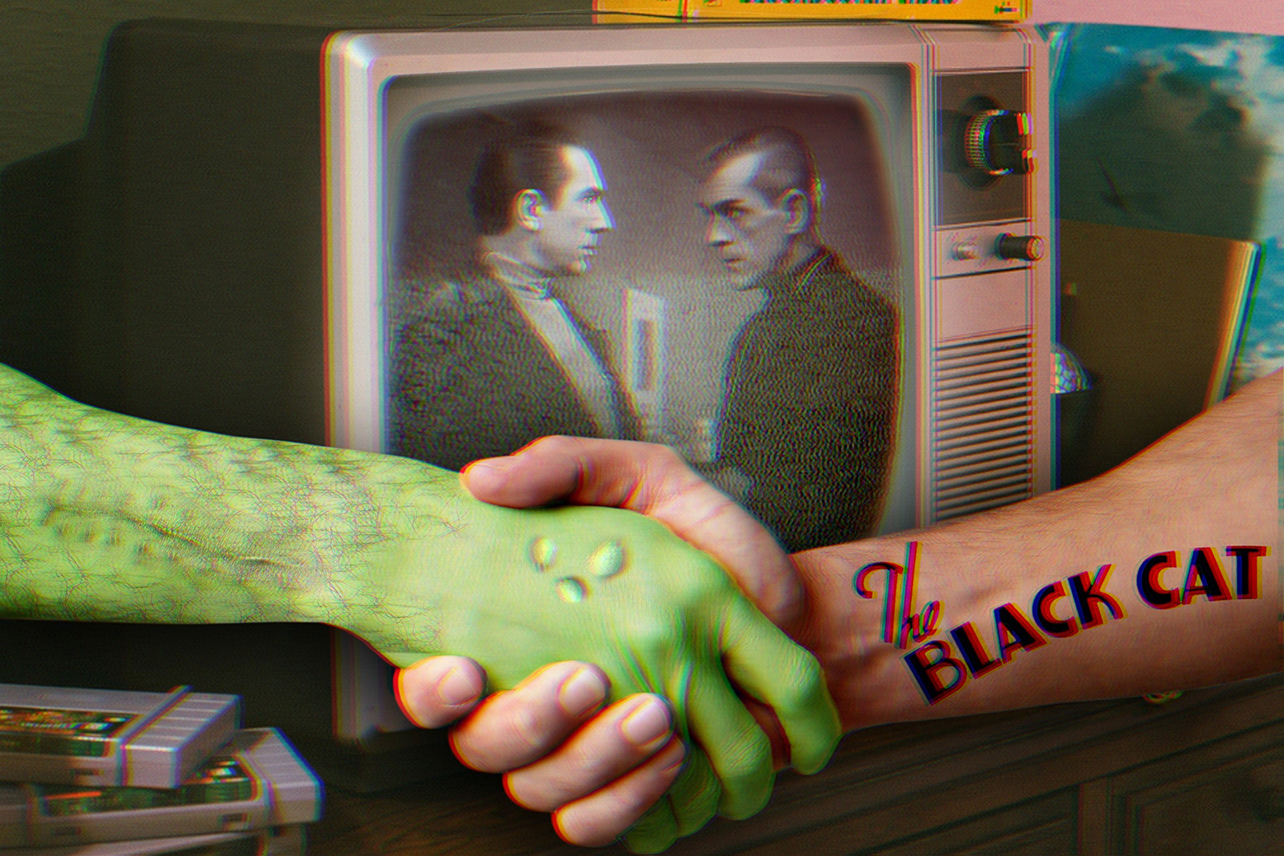Welcome to Horror Secret Handshakes, a monthly column spotlighting horror stories off the beaten path that serve as an instant vibe check with new friends, acquaintances, and fellow fans. If you both know the story, you feel the bond.
Everyone has those movies that they champion, the ones that make you shout out "You've never seen it?!" when a friend admits a blind spot. And everyone who cares about movies has also had the inevitable letdown that follows such a conversation, when you watch a film a friend won't stop recommending and realize that it's very much Not For You.
But it's worth chasing these movies down, because when the film clicks, you get to tell your friend they were right, and you get to become a new evangelist for said film, making sure everyone knows what they're missing. In the case of Pontypool, Bruce McDonald's stunning film adaptation of Tony Burgess's novel Pontypool Changes Everything, I owe my love of the film to my buddy Brad McHargue, a sometime film critic and very talented horror filmmaker in his own right. Brad and I don't agree on every horror film — quite the opposite, actually. But he was such a champion for Pontypool for so long that, one day, I found it streaming and pressed play.
And my jaw dropped.
For the uninitiated, Pontypool can be described in the broadest possible terms as a zombie movie, following the residents of the title Canadian town as a strange infection begins to take over and spread around them, turning people into machines of carnage. That's part of what took me so long to watch it, because it arrived on my radar at a time in my life when I was largely sick of zombie stories and felt the need to tune them out. But Pontypool is not interested in playing by traditional zombie movie rules, at least in terms of the lore surrounding those creatures. It's much more interested — in true Night of the Living Dead fashion — in using zombie metaphors to make a larger point about the world, the media, and our relationship to the truth.
See, Pontypool takes place almost entirely indoors, in the windowless basement of a church where the local radio station has made its studio. It's here that we get to know Glenn Mazzy (Stephen McHattie), a shock jock who lost his talk radio job in a bigger market and is left to slum it in a small community instead. With the help of his producer Sydney (Lisa Houle) and his technician Laurel-Ann (Georgina Reilly), he sets out to make a cold winter morning in the middle of nowhere into something interesting for his listeners. What he doesn't know, though, is that something violent has already begun in Pontypool which will consume the rest of his shift, and threaten to take everyone in the studio down with it.
I am a sucker for a great single-location horror movie. I love the suspense it provokes, the sense of fear derived from the unknown that may or may not be happening just on the other side of the walls. With the exception of a few shots, Pontypool does not stray from Glenn's recording booth and Sydney and Laurel-Ann's control room. It's tightly controlled enough to be a stage play (and indeed it's been adapted as a radio play), and that makes the horrors unfolding outside that much more vivid, as calls come in from around the community to inform the radio crew of the violence and the strangeness of their world.
The movie came out in 2008, the novel in 1995, back in the days before smartphones and podcasts ruled absolutely everything. And sure, setting the whole film in a radio station cuts down on the budget while also adding suspense. But Pontypool is after something much more upsetting than the "less is more" approach favored by so many horror filmmakers over the years. McDonald's film, and Burgess's screenplay adaptation of his own book, follows an infected that seems to spread not through bites or a contaminated food and water supply, but through words and how we understand them. I don't want to spoil all the wrinkles of this particular incarnation of a zombie virus, but the idea here is to pick away at our own grasp on the meaning of language in the age of spin doctors and talking heads. What does objective truth mean in a world where language itself is quite literally weaponized? How do you inform the public when the very words you speak can harm you? What is your duty to the truth, to communication as an act of social balance, when just hearing human speech could kill you?
It's the kind of thing that could get preachy, but thanks to a very smart script, and absolute knockout performances from McHattie (who genuinely gives one of the best performances in the history of horror cinema) and Houle, Pontypool holds a steady grip both on the sheer tension of its premise and the humanity of its characters as they struggle to come to grips with what's happening. It's a remarkably well-balanced piece of survival horror as well as a piece of social horror that's only gotten better with age, particularly after the isolation of the early months of the COVID pandemic. Watching it now, amid autocratic thuggery across America, it feels practically prophetic.
So, listen to me, and to my friend Brad: watch Pontypool the next chance you get. It'll fill your head with ideas that'll stew in there for weeks, and then you'll want to watch it again — and it'll give you more and more each time you do.
If you haven't already, consider supporting worker-owned media by subscribing to Pop Heist. We are ad-free and operating outside the algorithm, so all dollars go directly to paying the staff members and writers who make articles like this one possible.
